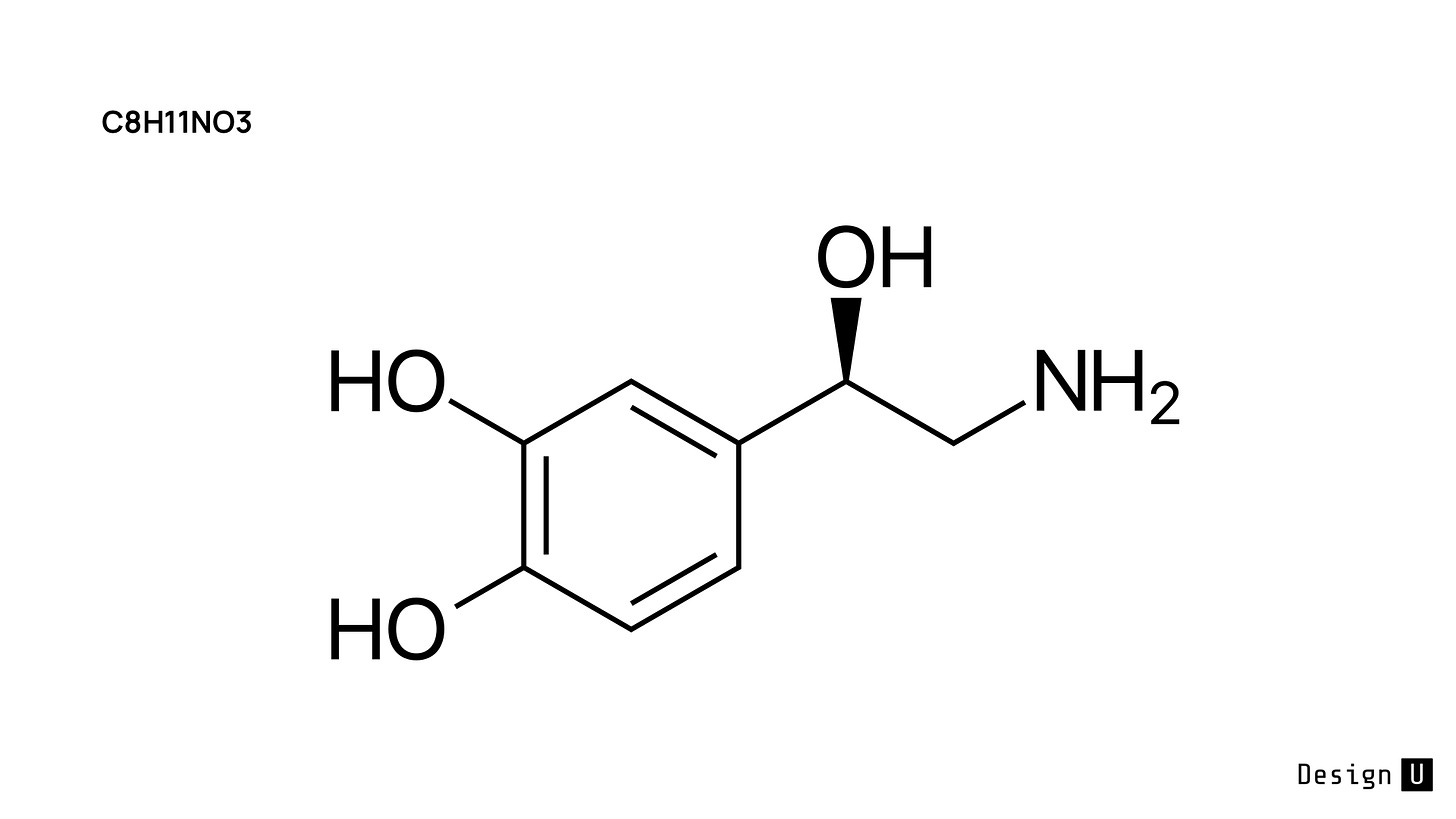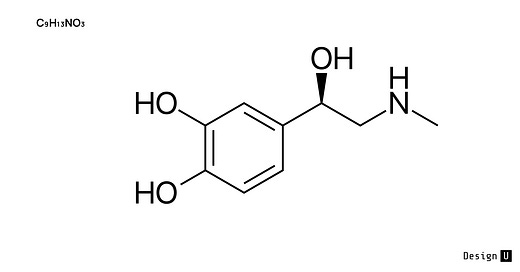Hormones and neurotransmitters are endogenous chemicals that enable communication within the various systems of the body.
Neurotransmitters relay information between individual neurons and regulate bodily functions where as hormones secrete the chemical messengers directly into the blood which carries them to organs and tissues of the body to exert their functions. In sum, total biologically we are a chemical soup which helps regulate our bodily functions.
We talked about the happy chemicals which alleviate us from pain, gives us rewards and makes us feel good. Similarly we have chemicals in our body that help us handle not so happy stressful situations. Thanks to our sympathetic nervous system the flight or fight systems takes over when we are in danger (stress).
When you get a call from your boss late at night or waiting for covid-19 test results or waiting for that response from the girlfriend after a bad fight, makes your body react as if there is a lion or tiger on the loose and near you.
Behind the wide range of both physical and mental reactions to stress are a number of hormones that are in charge of adding fuel to the fire. The classic fight or flight reaction is due to three hormones Adrenaline, Norepinephrine and Cortisol while other hormones are also involved in the play.
Adrenaline
This fight or flight hormone is produced by the adrenal glands after receiving a message from the brain that a stressful situation has presented itself. Adrenaline is largely responsible for the immediate reactions we feel when stressed.

Norepinephrine
This hormone helps you become more aware, awake, focused during stress. It is also released from the adrenal glands and from the brain. With norepinephrine you generally become more responsive. It helps to shift blood flow away from areas where it might not be so crucial, like the skin, and toward more essential areas at the time, like the muscles, so you can flee the stressful scene.
Given adrenaline (aka epinephrine), norepinephrine might feel redundant. Think of it as a backup system because it deals with survival mechanism. Even if one doesn’t work, the other does save you from the catastrophe. It takes between 30 mins and 48 hours to get back to normal resting state.
When you take a cold shower, you get a dose of norepinephrine. This is why yogic traditions and stoic cultures emphasised on alertness and awareness.

Cortisol
This steroid stress hormone is produced by the adrenal glands. It takes a little time (minutes) to feel the cortisol because the release of this hormone happens in a multi-step process involving other hormones.
As step 1, amygdala recognises there is a threat. It sends a message to hypothalamus, which releases corticotropin-releasing hormone (CRH). CRH then tells the pituitary gland to release adrenocorticotropic hormone (ACTH), which tells the adrenal glands to produce cortisol. Hence the delay.
While optimal amounts of cortisol can be life saving, too much cortisol is a troublemaker. It can suppress the immune system, increase blood pressure and sugar, decrease libido, produce acne, contribute to obesity and more.
Under chronic stress, your body continuously releases cortisol.

Strategies to manage
Here is a giant list of strategies to manage stress.
Routines: Having a morning and evening routine helps. If you can make something as a routine it is less load on your PFC.
Sleep: Timing, Quality and Quantity of sleep matters. Day time sleep is not good quality sleep.
Exercise: Be physically active during waking hours.
No caffeine at night: Avoid caffeine in the evening, it will impede with your sleep schedules.
Limit exposure to bright light at night: Turn off the screens and wind down for several minutes before bedtime. This helps in your melatonin.
Limit distractions before bed: Limit sleep interruptions by using eye masks, white noise, ear plugs, silencing your phone if you are a light sleeper. Avoid fluids right before bed.
Take naps: If shift work cuts your sleep hours short, napping can reduce sleepiness and prevent a sleep deficit. Naps cannot exceed 25 mins.
Relax your way: It could be deep breathing, journaling, art, meditation, taking a walk, a massage, music etc. Relax your way everyday.
Exercise: Exercise decreases cortisol at night. Intense exercise increases cortisol in the short term due to stress on the body, but still decreases it the following night.
Know when you are stressed: Stress mindfulness helps you to cope better.
Manage relationships: Say no to toxic relationships. Good relationships give you happiness. Toxic ones give you stress.
Manage a pet: Interacting with an animal companion reduces stress and lowers cortisol levels. Pets also benefit from positive relationships with their humans.
Forgive yourself: Resolving guilt improves life satisfaction and cortisol levels. This may involve changing habits, forgiving others or learning to forgive yourself.
All acts of kindness helps.
Eat healthy: Cortisol-reducing foods include dark chocolate, tea and soluble fiber. Avoiding excess sugar consumption may also help keep your levels down.
Supplements help: Herbs like ashwagandha reduce cortisol levels.
🥂 to survival!
Yo! Thanks for reading. Means a lot to me as attention is the hardest currency 🙏
If someone in your circle will benefit from this series, please pass them the details and ask them to subscribe here
If you would like to connect with the human behind the series, you can find me on Twitter and LinkedIn



